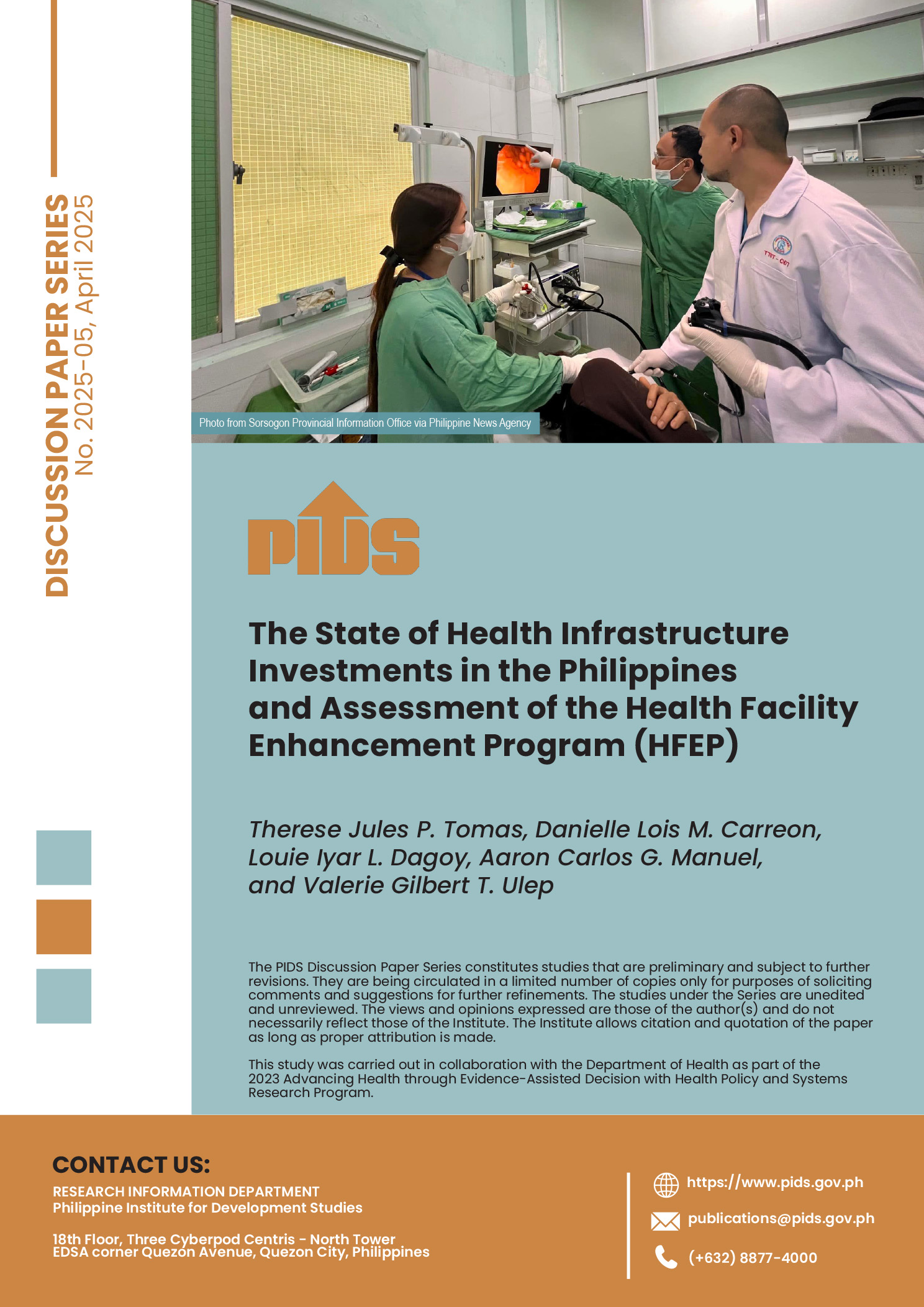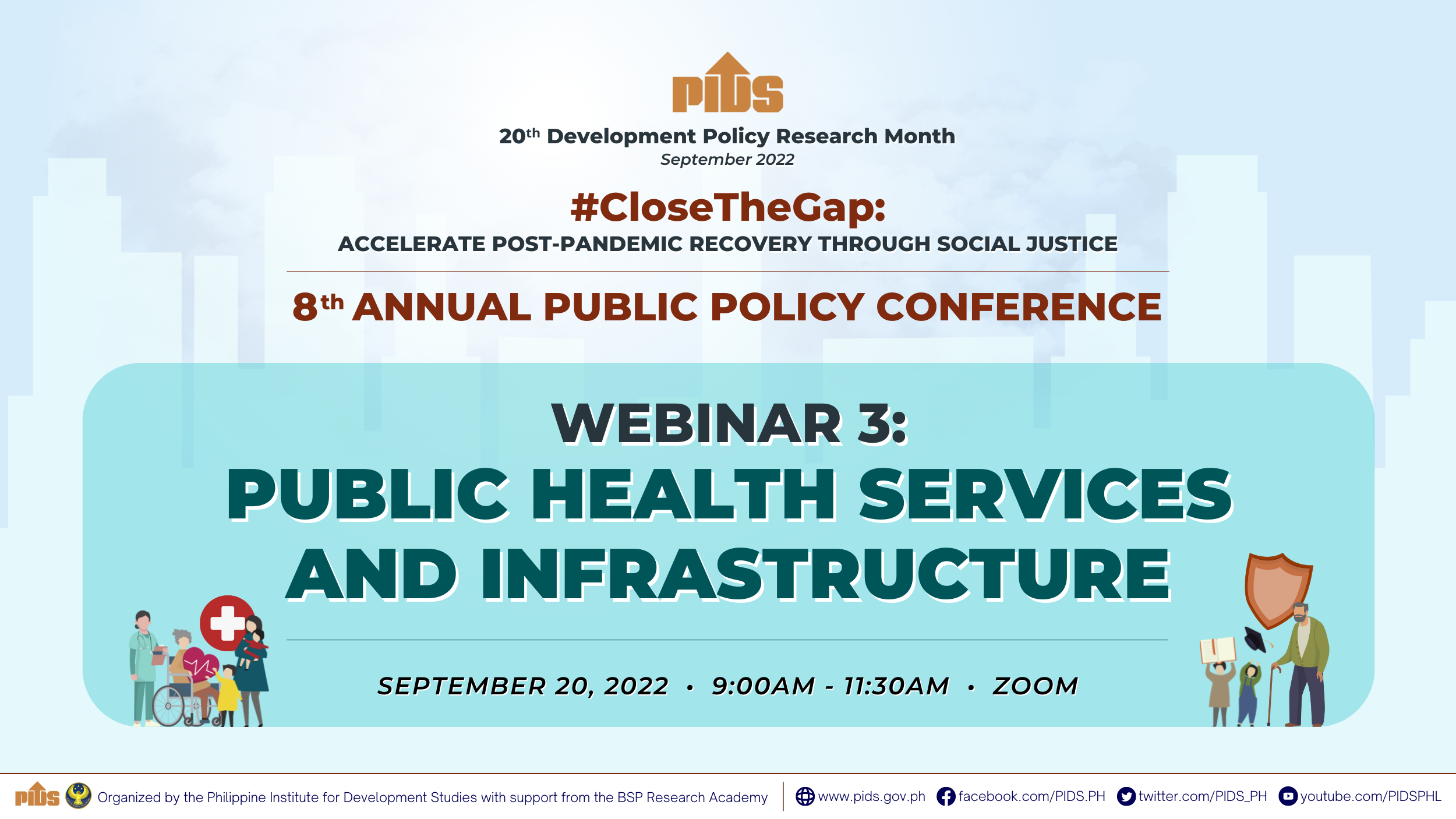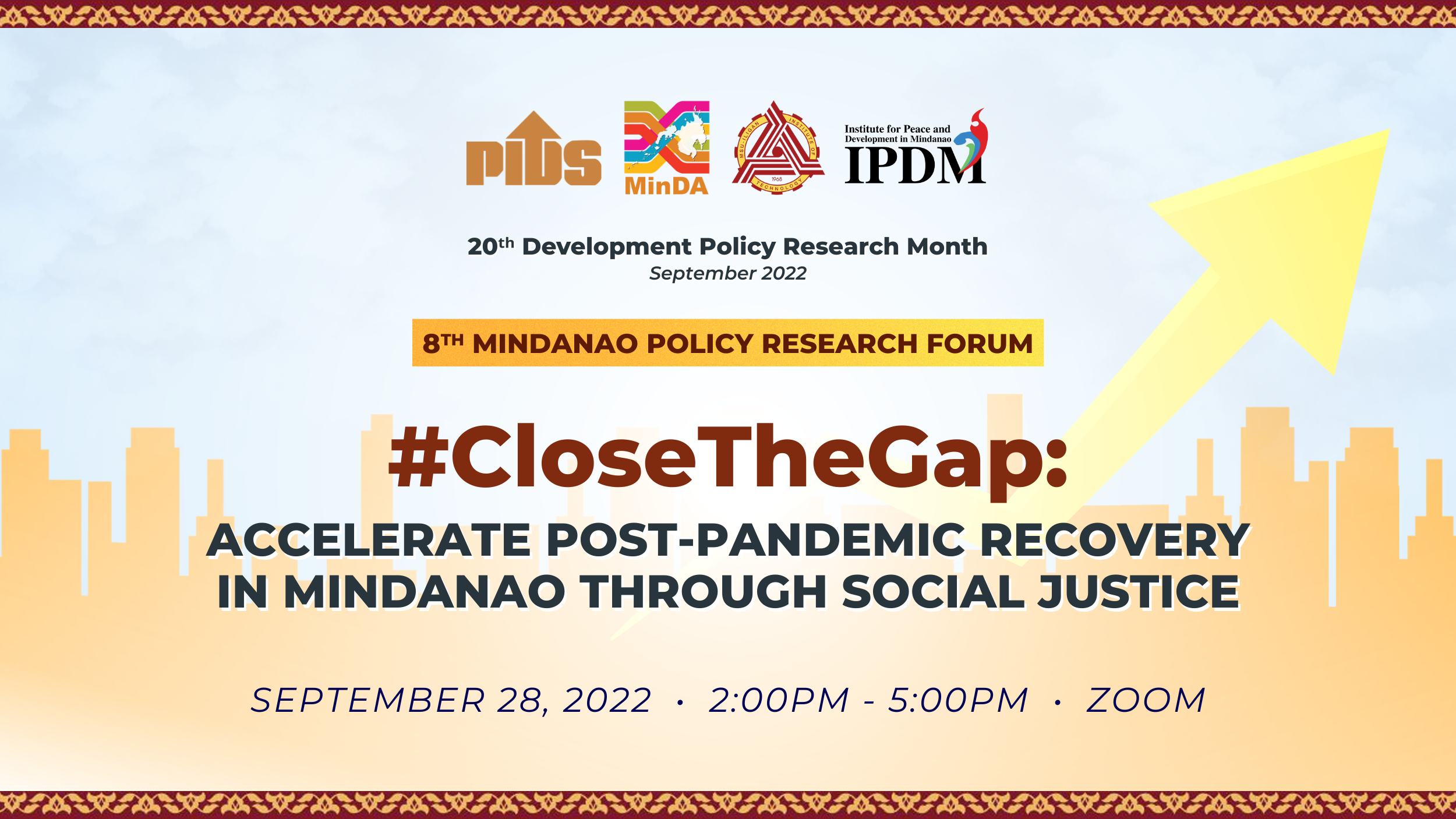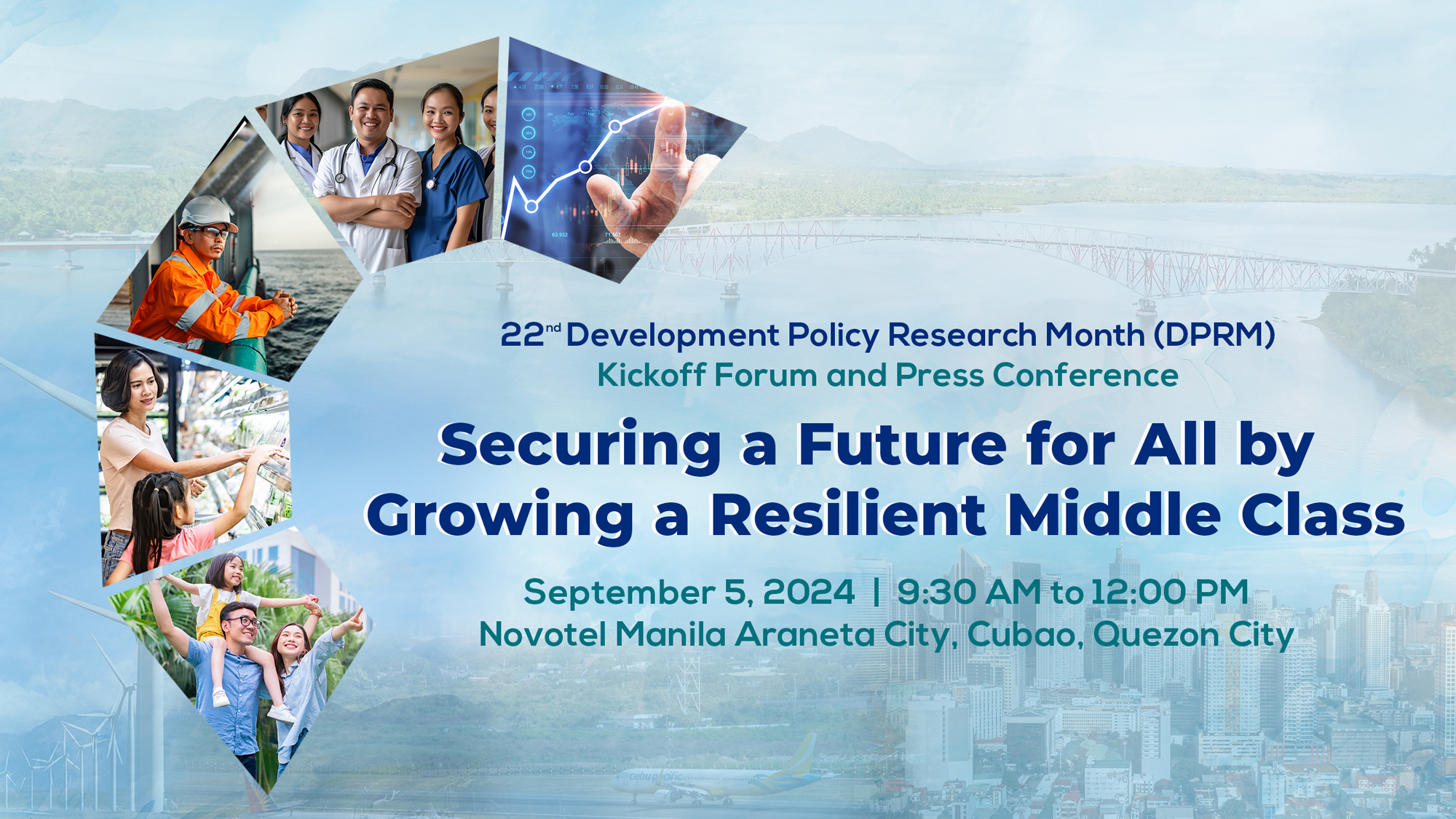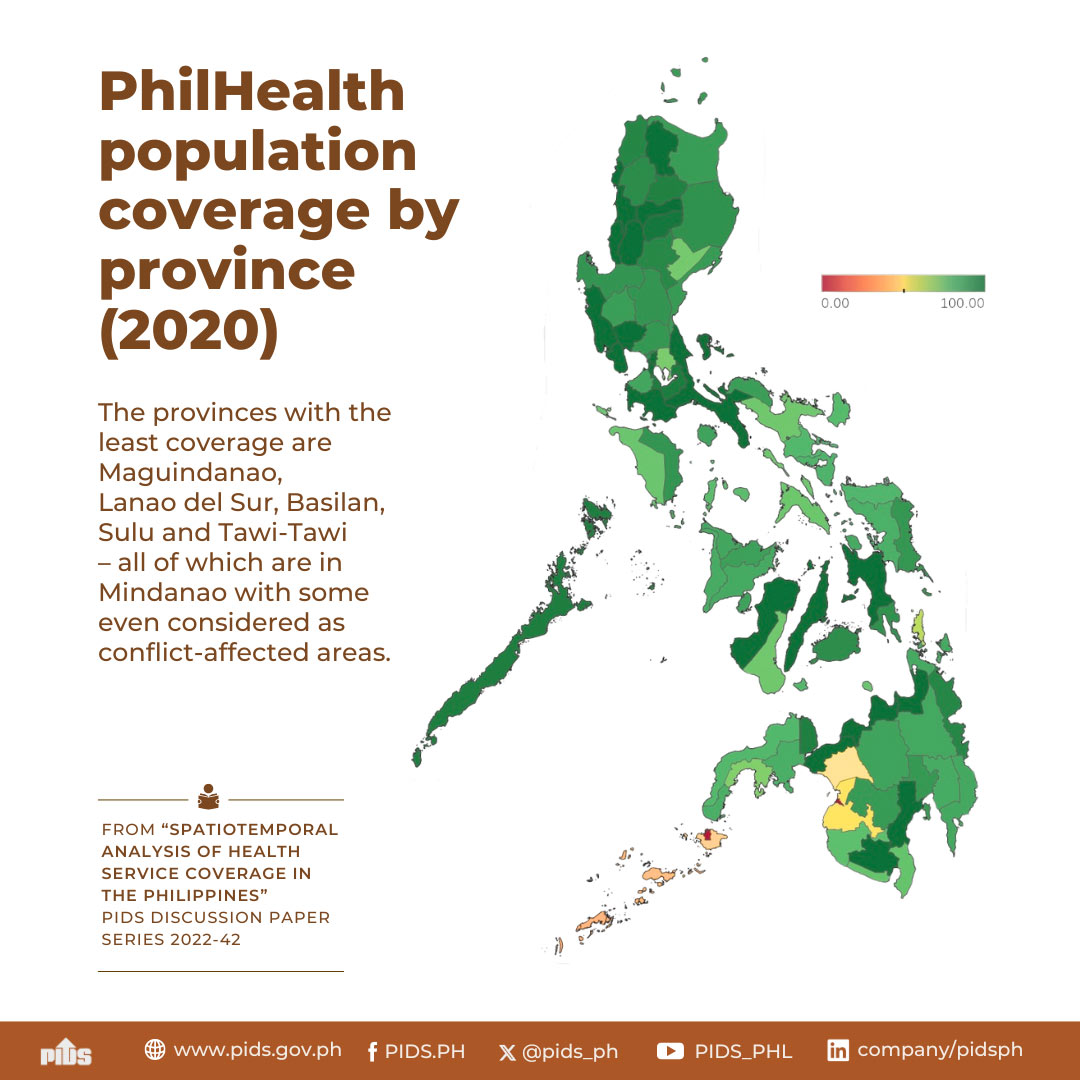"We need to address the urgent need of narrowing the gap between the richest and the poorest Filipino households in terms of health status," said PIDS president, Dr. Gilberto M. Llanto. "Despite the country's significantly growing economy, the Philippines's overall health indicators have not commensurately improved with that growth." he added. Llanto said the country is still suffering from high levels of non-inclusiveness and inequities in the aspect of health.
September of every year was declared as Development Policy Research Month (DPRM) by virtue of Presidential Proclamation No. 247 signed on September 2, 2002, to underscore "the need for promoting, enhancing, instilling, and drawing awareness and appreciation of the importance and necessity of policy research." The yearly observance of the DPRM aims to gain public support and wider understanding of the importance of policy research as a tool for national development and of the activities in line with it to help advance the quality and standard of policy research in the Philippines. Under the presidential proclamation, PIDS was designated as the overall coordinator of all the programs and activities of the DPRM.
Since its first observance in 2003, the annual DPRM focused on areas that the PIDS considers of national importance and therefore in need of utmost attention and support. Last year's DPRM focused on "Regional Economic Integration and Inclusive Growth" to underscore the impact of greater regional economic integration and globalization, taking into account the impending establishment of the ASEAN Economic Community (AEC) in 2015. The AEC is expected to bring the ASEAN countries together into a contiguous market and production base that will encourage inflows of foreign direct investment (FDI) into the region. The Philippines has not been successful, however, in harnessing the gains from regional economic integration, particularly in reducing poverty and creating more jobs. This has been attributed by PIDS experts to the limited economic transformation, low levels of FDI, and lack of diversification of our export products.
In continuity with last year's DPRM theme, this year's theme of "Making Health More Inclusive in a Growing Economy" focuses on analyzing the country's health sector and making it more inclusive. "We need a more thorough look at our health sector through research. PIDS and other international agencies like the Asia Pacific Observatory on Health Systems and Policies have conducted significant research into our country's health sector particularly in health financing and services," Llanto said.
The PIDS was created on September 26, 1977 through Presidential Decree 1201 to respond to the critical and growing need for research to assist the government in planning and policy formulation. In general, PIDS research is envisioned to help government planners and policymakers in the executive and legislative branches of government. It is a nonstock, nonprofit government corporation. In the 2012 Global Go To Think Tanks Report and Policy Advice of the Think Tanks and Civil Societies Program of the University of Pennsylvania, PIDS ranked 40th and 79th on the list of the world's best social policy think tanks and development think tanks, respectively. The Go To Think Tanks index is a comprehensive ranking of the world's top think tanks and has been described as the insider's guide to the global marketplace of ideas. For its latest rankings, 6,603 think tanks from 182 countries were invited or nominated to participate in the process.
For more information about PIDS, its programs, and activities, please visit our website at www.pids.gov.ph
To learn more about the DPRM and the schedule of seminar-forums, please visit the 11th DPRM website at dprm.pids.gov.ph.
September of every year was declared as Development Policy Research Month (DPRM) by virtue of Presidential Proclamation No. 247 signed on September 2, 2002, to underscore "the need for promoting, enhancing, instilling, and drawing awareness and appreciation of the importance and necessity of policy research." The yearly observance of the DPRM aims to gain public support and wider understanding of the importance of policy research as a tool for national development and of the activities in line with it to help advance the quality and standard of policy research in the Philippines. Under the presidential proclamation, PIDS was designated as the overall coordinator of all the programs and activities of the DPRM.
Since its first observance in 2003, the annual DPRM focused on areas that the PIDS considers of national importance and therefore in need of utmost attention and support. Last year's DPRM focused on "Regional Economic Integration and Inclusive Growth" to underscore the impact of greater regional economic integration and globalization, taking into account the impending establishment of the ASEAN Economic Community (AEC) in 2015. The AEC is expected to bring the ASEAN countries together into a contiguous market and production base that will encourage inflows of foreign direct investment (FDI) into the region. The Philippines has not been successful, however, in harnessing the gains from regional economic integration, particularly in reducing poverty and creating more jobs. This has been attributed by PIDS experts to the limited economic transformation, low levels of FDI, and lack of diversification of our export products.
In continuity with last year's DPRM theme, this year's theme of "Making Health More Inclusive in a Growing Economy" focuses on analyzing the country's health sector and making it more inclusive. "We need a more thorough look at our health sector through research. PIDS and other international agencies like the Asia Pacific Observatory on Health Systems and Policies have conducted significant research into our country's health sector particularly in health financing and services," Llanto said.
The PIDS was created on September 26, 1977 through Presidential Decree 1201 to respond to the critical and growing need for research to assist the government in planning and policy formulation. In general, PIDS research is envisioned to help government planners and policymakers in the executive and legislative branches of government. It is a nonstock, nonprofit government corporation. In the 2012 Global Go To Think Tanks Report and Policy Advice of the Think Tanks and Civil Societies Program of the University of Pennsylvania, PIDS ranked 40th and 79th on the list of the world's best social policy think tanks and development think tanks, respectively. The Go To Think Tanks index is a comprehensive ranking of the world's top think tanks and has been described as the insider's guide to the global marketplace of ideas. For its latest rankings, 6,603 think tanks from 182 countries were invited or nominated to participate in the process.
For more information about PIDS, its programs, and activities, please visit our website at www.pids.gov.ph
To learn more about the DPRM and the schedule of seminar-forums, please visit the 11th DPRM website at dprm.pids.gov.ph.

